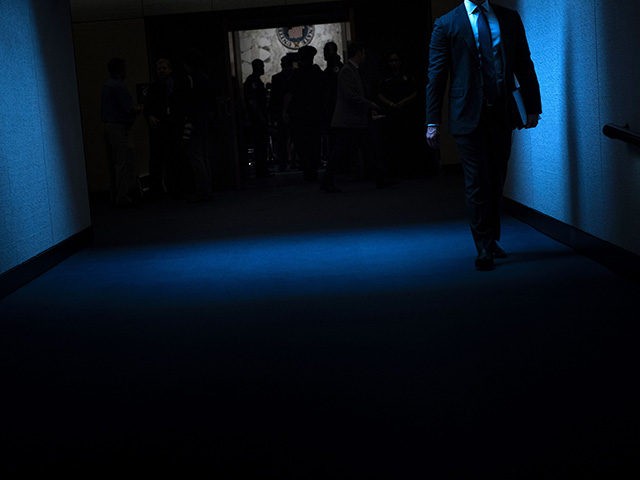Historian Francis Fukuyama took to the pages of the Wall Street Journal to defend the “Deep State,” arguing that a politically independent civil service was central to the stability of American democracy.
Fukuyama did not mention the recent Department of Justice (DOJ) Inspector General (IG) report, which found that the “Deep State” — in the form of the FBI — violated civil liberties and lied to the courts as it spied on associates of President Donald Trump.
He wrote:
For years, conservatives have been railing against the growth of the “administrative state,” a mass of faceless and unaccountable bureaucrats allegedly holding tyrannical power over ordinary citizens. Since the election of Donald Trump in 2016 and the launch of several investigations of his administration, this complaint has morphed into even sharper attacks on America’s so-called “deep state”: unelected officials who are supposedly partisan Democrats ready to do anything to undermine the Trump presidency. Such charges were hurled against the civil servants called to testify in the House’s impeachment hearings, including top career diplomats such as Marie Yovanovitch and Bill Taylor and National Security Council experts such as Fiona Hill and Lt. Col. Alexander Vindman.
But American constitutional government depends on the existence of a professional, expert, nonpartisan civil service. Hard as it is to imagine in this moment of extreme partisan polarization, government cannot function without public servants whose primary loyalty is not to the political boss who appointed them but to the Constitution and to a higher sense of the public interest. Like all modern democracies, the U.S. needs a deep state, because it is crucial to fighting corruption and upholding the rule of law.
…
Those attacking the “deep state” are really attacking the rule of law. Public officials in the executive branch are obligated to implement the policies of their political bosses, even if they disagree with them. But they have a higher obligation to uphold the Constitution, and they must exercise their own judgment if they see a policy that violates it.
Fukuyama does not account for the possibility that those “deep state” officials may be wrong , and that by taking the law into their own hands, as in the Trump case, they are taking a stand against democracy and the rule of law.
Fukuyama is known for prematurely declaring the “end of history” with the fall of the Soviet empire. He attacked Breitbart News in January 2017 the week before Trump’s inauguration, as the herald of a “post-fact world.”
Joel B. Pollak is Senior Editor-at-Large at Breitbart News. He earned an A.B. in Social Studies and Environmental Science and Public Policy from Harvard College, and a J.D. from Harvard Law School. He is a winner of the 2018 Robert Novak Journalism Alumni Fellowship. He is also the co-author of How Trump Won: The Inside Story of a Revolution, which is available from Regnery. Follow him on Twitter at @joelpollak.

COMMENTS
Please let us know if you're having issues with commenting.